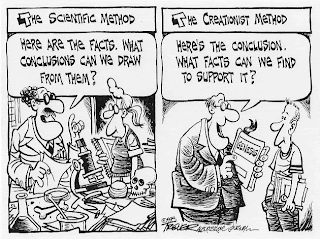My main thesis today is that: science doesn't say anything except what it was researched. Way too abstract, but let me tell you the example that made me came to that statement. My friend was stating that some experiments with obscure results, with some unclear conclusions, pointed to the fact that there exist a "transcendental thing" and that "everything is connected" (I apologize for not understanding exactly what goes on in a mystic mind and use such general terms). One of the examples, which I didn't verify (doesn't matter because, as we'll see, even if it's true it doesn't apply anything he claimed), is about one experiment involving rats. According to the experiment, a rat tried many times to solve a maze to get food. After that, in other room, another rat was able to solve it in the first try. He cited another experiments (all in this line, of mysterious and unexplicable phenomena) that support the idea of a "transcendental reality" (again, the quotation marks mean I don't quite comprehend the ideas rather than his factual words). He turned all the phenomena into proofs for his beliefs, and claimed the science supported them. But the true is, or at least my thought is, that every conclusion drawn after a scientific experiment or fact is not scientific itself. It may be considered speculation of philosophy of science, but never a scientific fact itself. For each scientific truth (in the sense of what can be considered truth in science - there's a lot to write about that) there are a lot of interpretations, and they are not science. (We could consider it science, but the word science would lose a lot of strenght. In the same sense, we could call our grandmothers our second and third mothers, again weakening the meaning of the word.)
Another example of such interpretations is saying that the wormholes support the cristianism, because they are a scientific way of angels travel fast through space (so the modern science would be confirming the Bible). Analogously, the wormholes support the Dragon Ball theory.
The unique valid way of saying science supports a fact is testing the fact, with all anti-bias devices the scientific method provides. Just collecting supporting experiments doesn't take us anywhere. There is a very suitable comic for the moment (one specific about creationism):
Using my own example, I would ask to imagine how the mystic and the scientific approaches reacts to one experiment about whether or not peanuts are afrodisiac. The experiment is conducted, and two people out of a hundred are affected that way. According to the scientific approach, the data doesn't support the hypothesis. While that, the typical mystic is telling everyone two new anecdotes of a successful use of peanuts.
Another example of such interpretations is saying that the wormholes support the cristianism, because they are a scientific way of angels travel fast through space (so the modern science would be confirming the Bible). Analogously, the wormholes support the Dragon Ball theory.
The unique valid way of saying science supports a fact is testing the fact, with all anti-bias devices the scientific method provides. Just collecting supporting experiments doesn't take us anywhere. There is a very suitable comic for the moment (one specific about creationism):
Using my own example, I would ask to imagine how the mystic and the scientific approaches reacts to one experiment about whether or not peanuts are afrodisiac. The experiment is conducted, and two people out of a hundred are affected that way. According to the scientific approach, the data doesn't support the hypothesis. While that, the typical mystic is telling everyone two new anecdotes of a successful use of peanuts.
